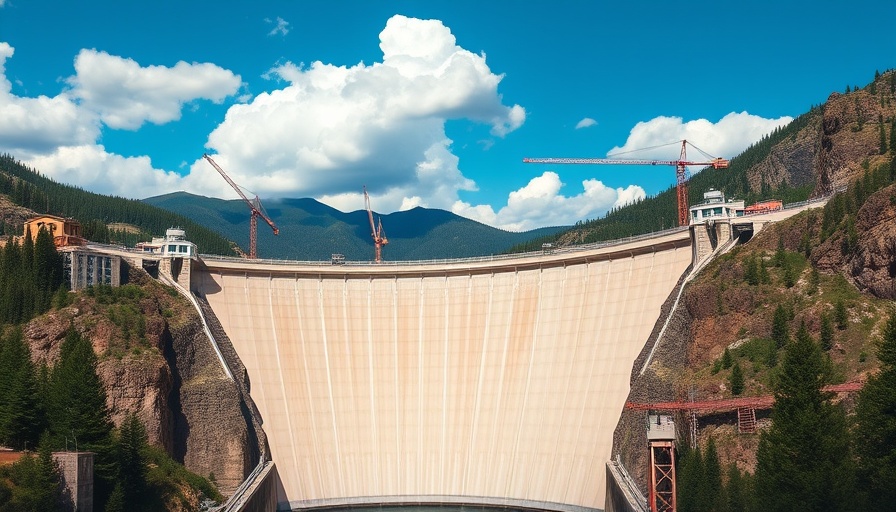
Denver Dam Expansion: A Setback for Water Infrastructure
The ambitious $531 million expansion of Gross Dam, spearheaded by Denver Water, has come to an unexpected halt following a federal court ruling that found the key construction permit issued by the U.S. Army Corps of Engineers was improperly granted. U.S. District Judge Christine Arguello's decision puts the brakes on one of Colorado's largest dam projects, a significant blow to local infrastructure as nearly 60% of the work was reportedly completed. This developmental initiative aimed to increase the reservoir’s capacity to support 1.5 million residents and enhance water security amid growing concerns surrounding climate change and extreme weather patterns.
Understanding the Legal Twist: Environmental Impacts Ignored?
Judge Arguello's ruling focused heavily on the misconception that sufficient environmental assessments were conducted prior to granting the permit. The Army Corps was found to have fallen short in its obligation to evaluate potential alternatives for meeting the water demand, leaving critics concerned over the sustainability of such infrastructure projects. The legal tussle originated from aggressive advocacy efforts by environmental groups like Save the Colorado, which highlighted serious flaws in the evaluation process and argued against token assessments.
The Advocates’ Perspective: A Call for Sustainable Solutions
The decision has sparked a renewed conversation about the need for environmentally cognizant infrastructure projects in the region. Advocacy groups have long argued that expanding dam capacities may lead to detrimental impacts on ecosystems and communities downstream. Gary Wockner of Save The Colorado has been vocal regarding his discontent with the reckless expenditure of public funds on a project still mired in legal challenges. This point underscores a growing demand for collaboration and transparency in project planning and execution.
Wider Implications: Water Policy for the Future
This ruling, while seemingly localized, is a bellwether for water policy management throughout the Colorado River Basin, a critical water source shared by over 40 million residents across seven states. Growing drought issues and water shortages have raised alarms, leading environmentalists to caution against further expansion of upstream storage capabilities that could exacerbate diminishing water availability for agricultural sectors and urban areas alike. Discussions surrounding water demand and sustainable approaches to resource management are increasingly pressing in light of this ruling.
Future Trends: Legal Precedents in Infrastructure Projects
Legal experts suggest that this decision could have far-reaching implications for future federally approved water projects. If environmental assessments continue to be heavily scrutinized, this may serve as a transformative shift in how agencies approach infrastructure development concerning ecological integrity. This ruling has the potential to alter the dynamics of power in construction regulations, empowering advocacy groups and citizens alike to demand rigorous evaluations for large-scale projects.
A Call to Action: Ensure Sustainability in Infrastructure Planning
As the Gross Dam expansion stands halted, business owners, property developers, and facility managers should leverage this moment to reconsider how they approach infrastructure investments. This case showcases the invaluable lesson that while the allure of large-scale projects may be tempting, the responsibility towards sustainable development cannot be overlooked. Engage in discussions about future projects and advocate for structurally resilient solutions that prioritize environmental considerations alongside community needs.
 Add Row
Add Row  Add
Add 




 Add Row
Add Row  Add
Add 

Write A Comment